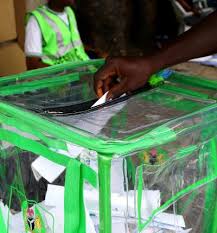… Lawyer Invokes Freedom Of Information Act, Calls Fee ‘Illegal, Outrageous’
The Independent National Electoral Commission (INEC) has come under fire after demanding a staggering ₦1.5 billion from a Nigerian law firm, V.C. Ottaokpukpu & Associates, as the cost of producing certified copies of the national register of voters and the complete list of polling units across the country.
The development has triggered a storm of criticism from legal and civil society circles, with the requesting firm describing the demand as “financially oppressive and legally baseless.”
In a letter dated October 13, 2025, and signed by INEC Secretary, Rose Oriaran-Anthony, the electoral umpire approved the firm’s Freedom of Information (FOI) request made under the Freedom of Information Act (FOIA) 2011, but pegged the “production cost” at ₦1,505,901,750.
“You are hereby requested to pay the sum of One Billion, Five Hundred and Five Million, Nine Hundred and One Thousand, Seven Hundred and Fifty Naira (₦1,505,901,750) being the cost of production of the above,” the letter read in part.
The Commission directed the law firm to make the payment via its Remita Retrieval Reference (RRR) portal before processing the request for the national register of voters and polling unit details across Nigeria’s 774 local governments.
… Lawyer Describes Demand As ‘Outrageous, Illegal’
Reacting to the Commission’s response, Vincent Ottaokpukpu, Principal Associate of the firm, described the demand as “legally wrong, morally indefensible and financially outrageous.”
“INEC cannot hide behind costs to frustrate citizens’ access to public information,” he said. “The Freedom of Information Act gives every Nigerian the right to obtain certified copies of public documents at a reasonable cost — not an exploitative amount like this.”
Ottaokpukpu had, on October 8, written to the Commission requesting the documents, citing the FOI Act’s guarantee of public access to official records and data. He argued that INEC’s monetary condition contradicted the spirit and intent of the law.
“This amount is clearly meant to discourage transparency. No serious institution should demand ₦1.5 billion for information that is supposed to be public,” he added.
… INEC Defends ₦1.5bn Bill
However, INEC has defended its action, saying the charge reflected only the actual cost of duplicating and transcribing the massive database.
In a statement issued on Thursday, and signed by Victoria Eta-Messi, the Commission’s Director of Voter Education and Publicity, INEC said the cost was based on its approved unit rate of ₦250 per page, as permitted under Section 8(1) of the FOI Act.
“The amount represents the actual cost of reproducing over six million pages of documents at ₦250 per page,” the statement explained.
INEC said the national register of voters, containing 93,469,008 registered voters, would require 6,018,661 pages to reproduce at 16 voters per page, while the details of 176,848 polling units would take an additional 4,946 pages — bringing the total to over 6,023,607 pages.
“The total cost, therefore, is ₦1,505,901,750, derived strictly from the actual cost of document duplication and transcription,” the Commission stated. “This figure includes no hidden or administrative charges.”
INEC added that it remained committed to transparency and responsible financial management in line with statutory provisions.
… Public Reaction and Transparency Concerns
The fee has since drawn sharp criticism from civic actors and transparency advocates, who say it undermines the purpose of the Freedom of Information Act, which is meant to make government data accessible at minimal cost.
Some analysts argue that while INEC may recover reasonable costs of production, the figure it quoted suggests a lack of digital readiness and raises questions about the Commission’s data management efficiency.
“This is precisely why Nigeria needs open data systems,” said a civil rights advocate who spoke with PLATFORM TIMES. “Charging ₦1.5 billion for voter data in the digital age shows that public information is still being treated like a secret commodity.”
… Legal, Public Accountability Issues
Section 8(1) of the FOI Act allows public institutions to charge for “the actual cost of document duplication and transcription,” but does not authorize charges so high that they effectively deny access to information.
Observers warn that the dispute could set a precedent for how Nigerian institutions respond to public data requests in the future.
Meanwhile, Ottaokpukpu said his firm was considering legal action to challenge the “illegal and excessive” demand, insisting that INEC’s obligation to transparency should not be monetized.
“We will not allow this to stand. Access to public information is a constitutional right, not a privilege for the rich,” he said.
Do you want to share a story with us? Do you want to advertise with us? Do you need publicity for a product, service, or event? Contact us on WhatsApp +2348183319097 Email: platformtimes@gmail.com
We are committed to impactful investigative journalism for human interest and social justice. Your donation will help us tell more stories. Kindly donate any amount HERE




